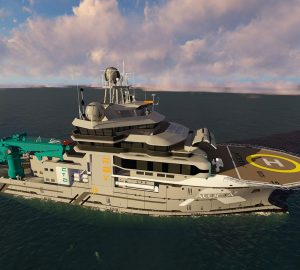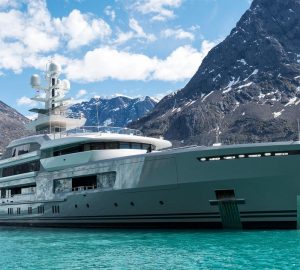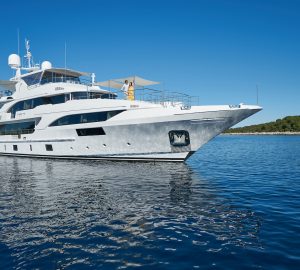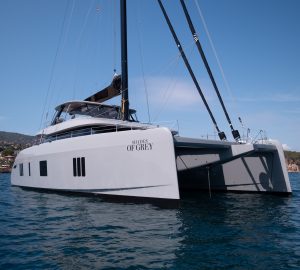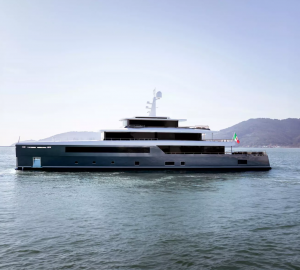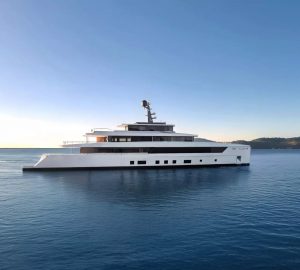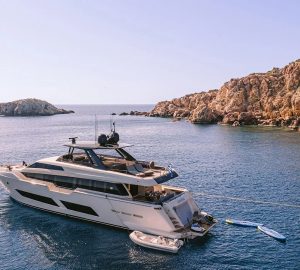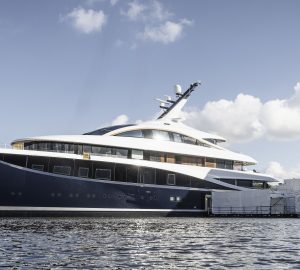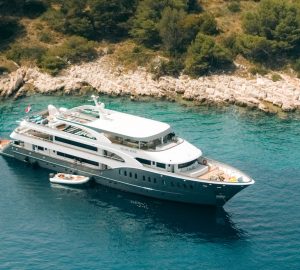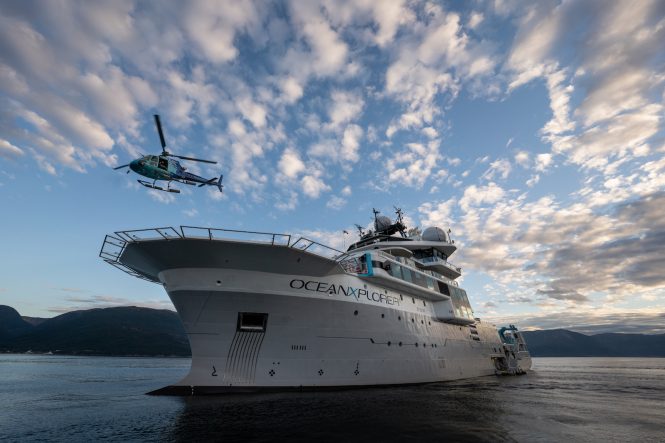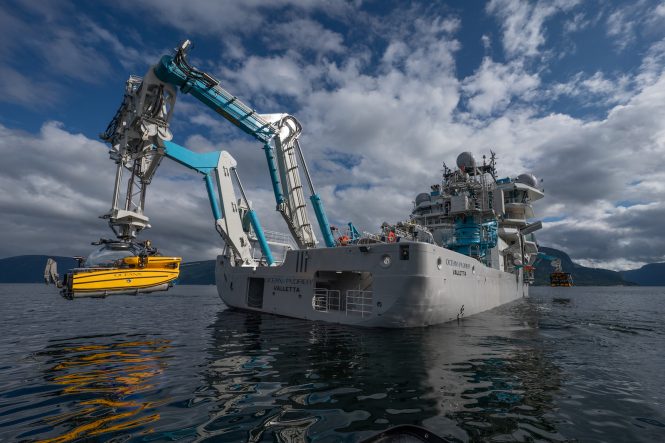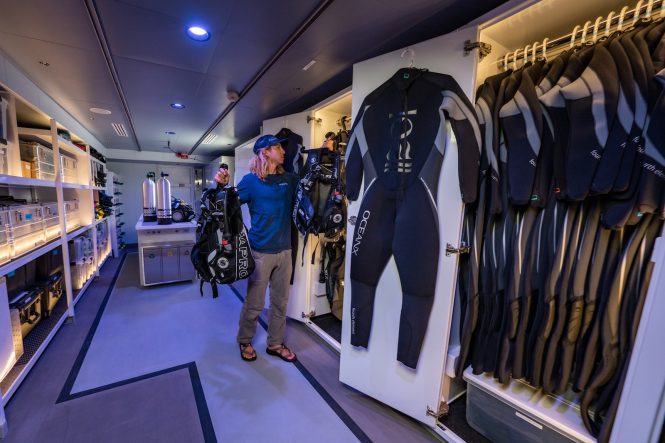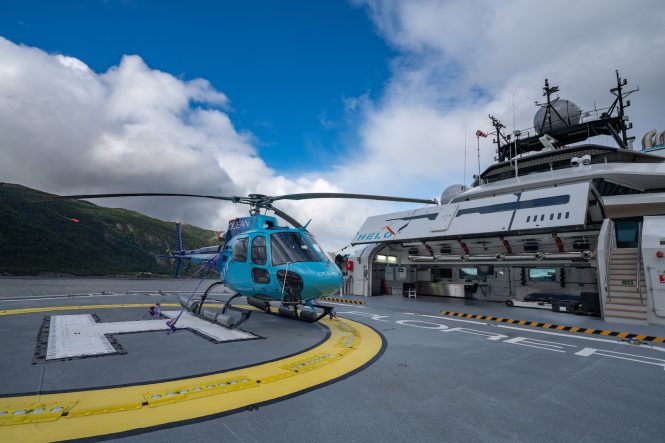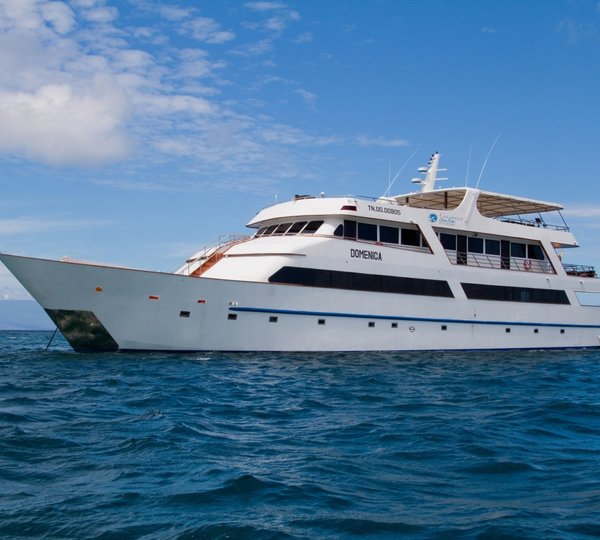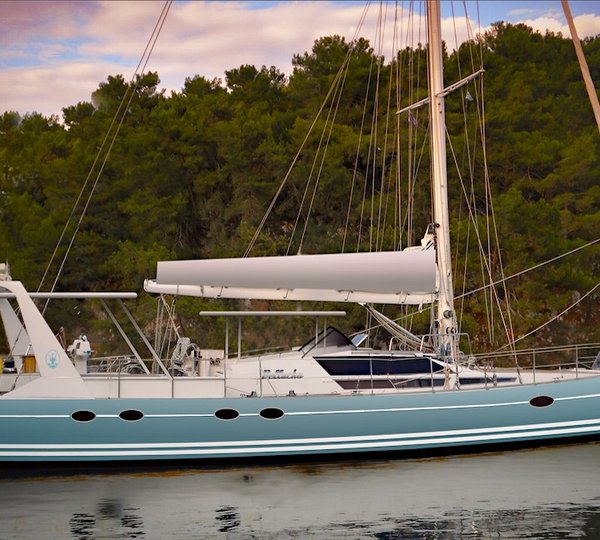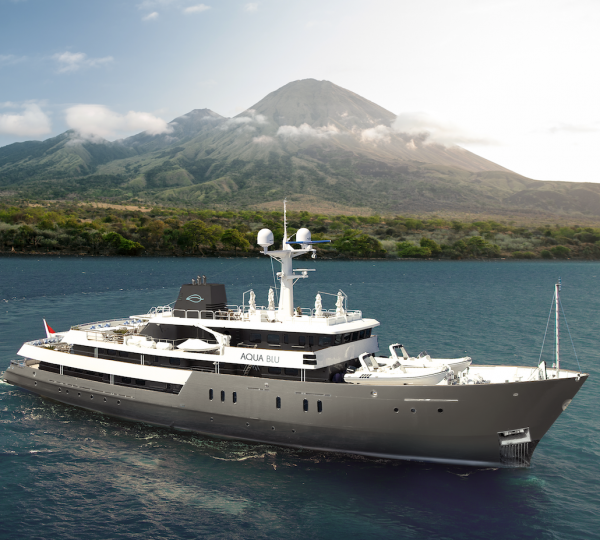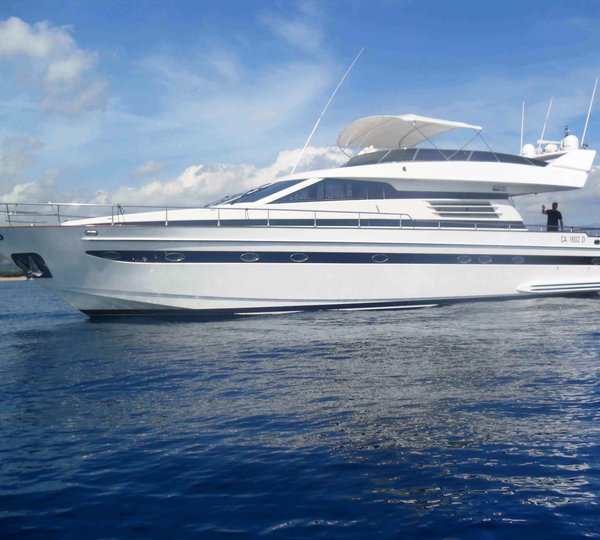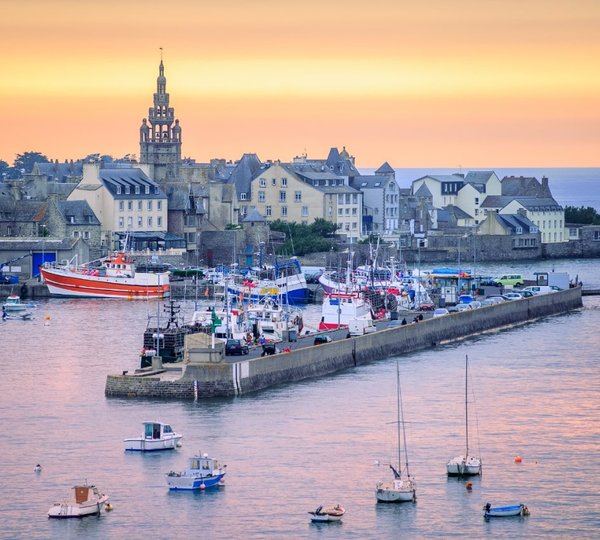Explorer yacht OCEANXPLORER (ex.ALUCIA 2, VOLSTAD SURVEYOR) is one of the most advanced scientific research vessels on the water and soon to star in her very own National Geographic Blue Planet TV series ‘Mission OceanX’ chronicling her adventures and expeditions to some of the remotest and inhospitable locations in the world. Now, guests can take a look onboard at the research labs and extensive tender garage that are being used to advance knowledge of the world’s oceans and ecosystems.
Originally built in 2010 as a deep-sea survey vessel, she received an extensive conversion in 2018 that included the addition of chemical, biological and geophysical sampling tools, a centralised data integration system, a media centre and media-optimised scientific exploration vehicles.
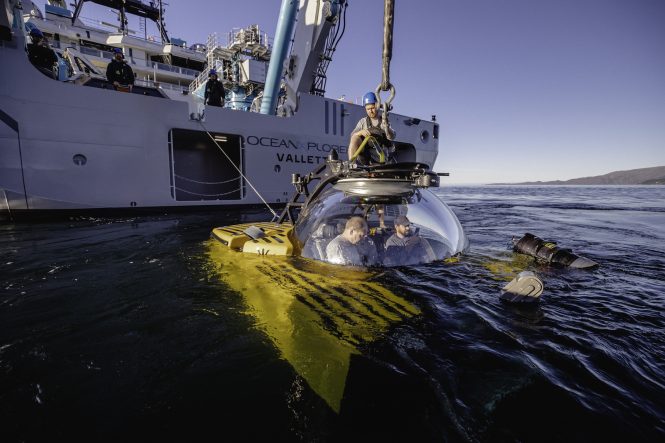
Triton submersible is lowered into the water as the ships crew and science team test its systems in preparation for future missions – Credit Taj Howe
These vehicles include an onboard helicopter stored in its own climate-controlled hangar, two manned Triton submersibles capable of reaching depths of more than 1,000m/3,280ft for up to eight hours, a Remotely Operated Vehicle (ROV) and an Autonomous Underwater Vehicle (AUV) that can go down to 6,000m/19,685ft. A 40-ton man-rated A-frame crane will launch and retrieve these submersibles, while dedicated deployment systems will launch and retrieve piloted and autonomous underwater drones, and oceanographic sensor platforms.
E/Y OCEANXPLORER has an optical modem capable of live streaming video and data from submersibles down in the depths of the ocean to social media feeds and classrooms. This is achieved using custom lighting rigs and housings to make her the only vessel in the world capable of imaging using 8K RED cameras 6,000m/19,685ft down in the depths.
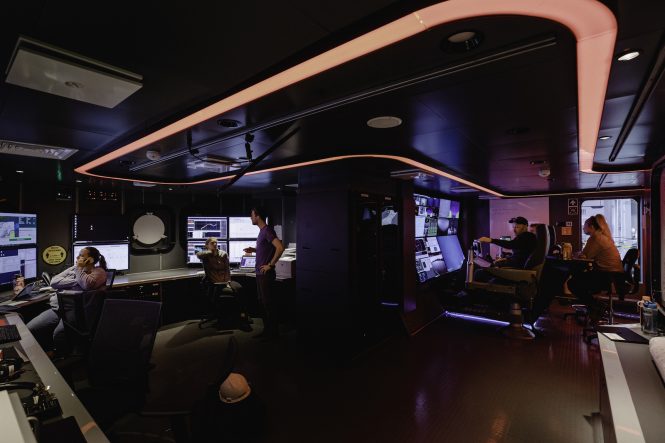
OceanX team is seen here in mission control where multiple teams collaborate and share information to make sense of their discoveries – Credit Taj Howe
Filmmaker and ocean explorer James Cameron, and the Avatar Alliance Foundation in consultation with production designer N.C. Page Buckner will stream the findings to worldwide audiences, revealing any and all scientific discoveries the moment they happen.

OceanX team is seen here in mission control where multiple teams collaborate and share information to make sense of their discoveries – Credit Taj Howe
The six-part National Geographic series under the working title ‘Mission OceanX’ will be co-produced by OceanX Media, BBC Studios, and National Geographic Explorer James Cameron. The first season will centre on the North Atlantic Ocean and will have a premiere in 171 countries in 43 languages on the National Geographic channel. Potentially, a different region of the world’s oceans will be explored in any following series.
E/Y OCEANXPLORER is currently cruising in the Red Sea and will host scientists from leading institutions the world over to study super corals resistant to global warming.


